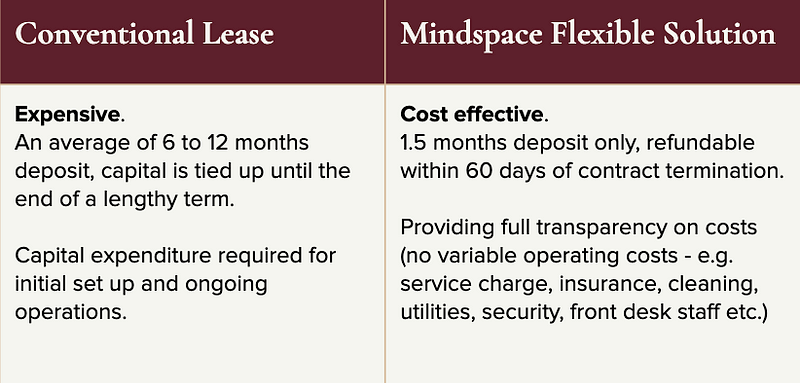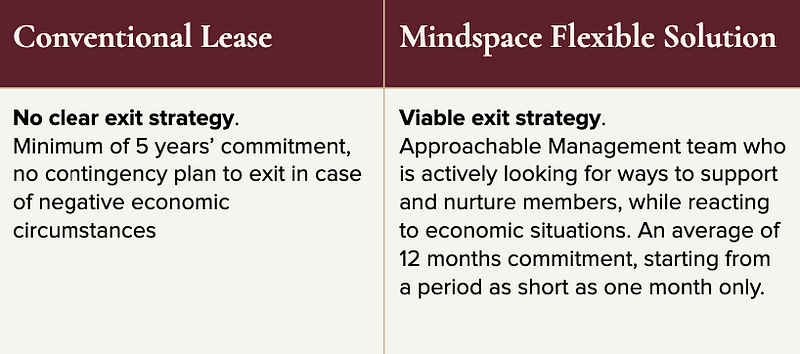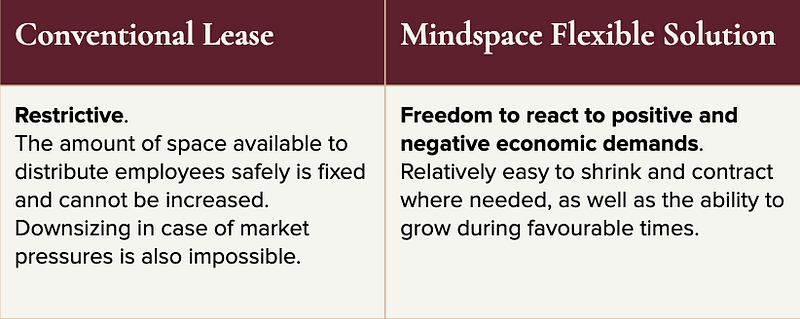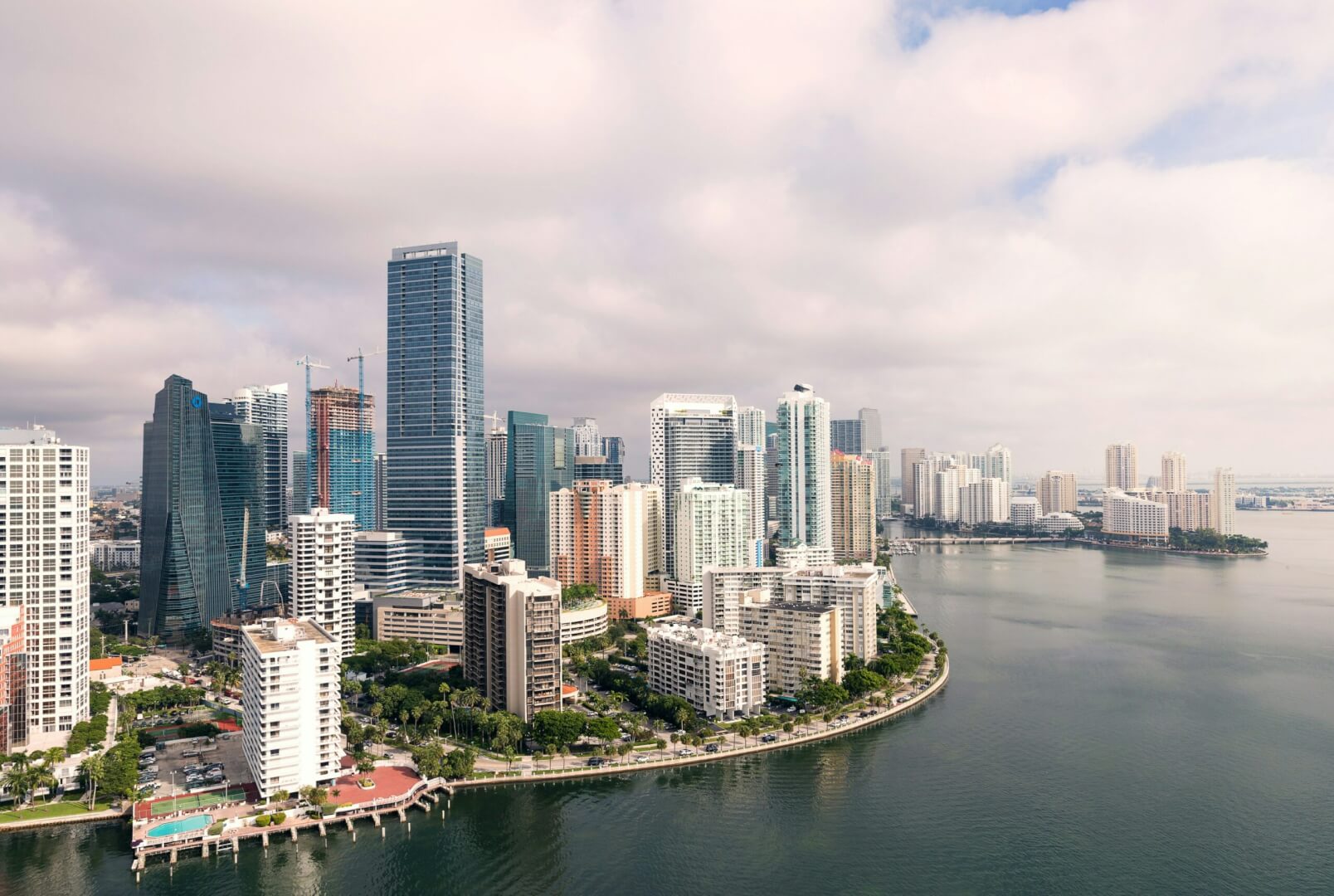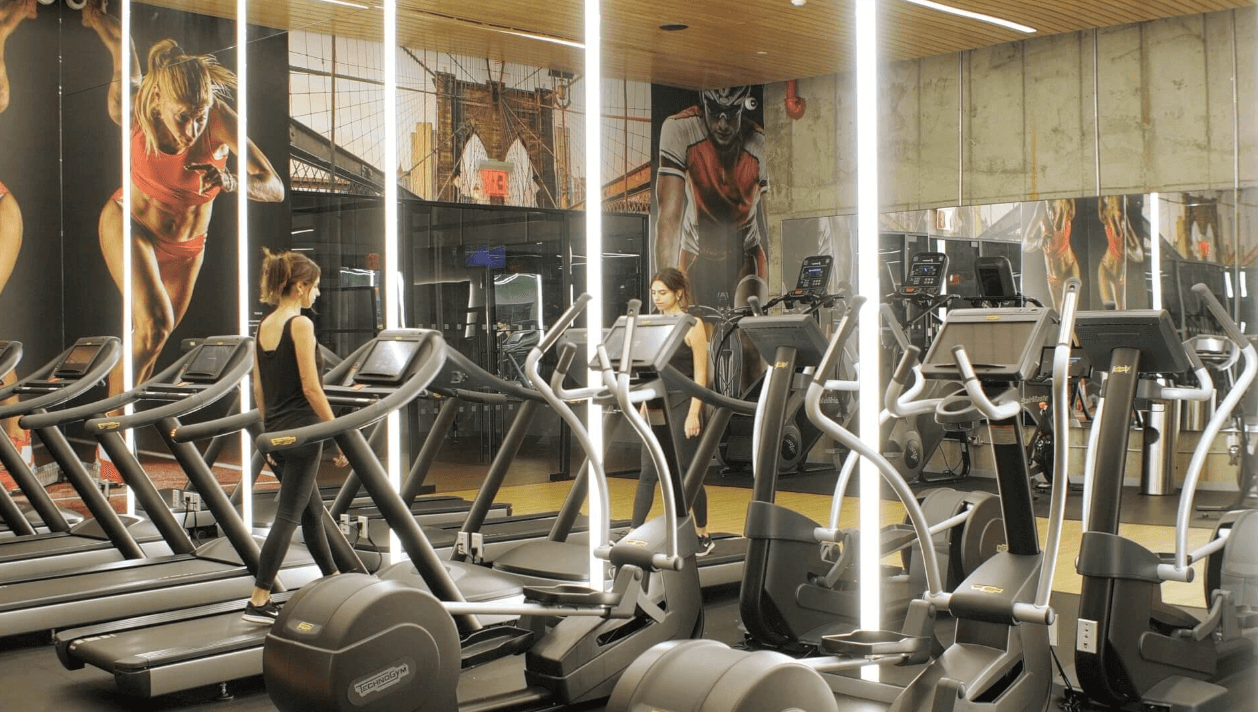
Flexible Spaces vs. Conventional Leases Post-COVID-19-Pandemic
If and when you return to your office once the lockdowns are lifted, you’ll probably ask yourself if this is the safest environment for you and your team to work at.
Yes, one could argue that the safest space to work from is home, and yes, a significant percentage of those who are employed will keep working from home as some companies are announcing a WFH policy for their employees.
But working from home only, without an office environment, is only a short-term solution as it proves to be challenging in various aspects, predominantly due to our need in human connection, as we are clearly social creatures.
So, we’ve established that it’s “better” to go back to the office.
Now the question is which type of office is the right one for me? What are my considerations, which may not have been as pressing or significant pre-corona?
The choice to make is either a traditional office or a flexible one like the Mindspace hybrid offices in London. Some employers will need to downsize their leases or look for flexible office space rather than long-term leases, as in these uncertain times, your office should provide you with not only physical safety, but financial safety as well. If you’re rethinking your office choice to flex, read on.
Why is a flexible contract so important?
Companies of all sizes are in need of a flexible budget and the freedom to react to positive and negative economic demands. A flexible workspace like coworking Williamsburg at our Brooklyn coworking space allows flexible financial management and allows companies to focus on their core business and not the complexities of commercial office space leasing, which can be very time-consuming.
See how to save on your office real estate easily in this informative article.
What are the benefits of flexible spaces?
With flexible office spaces in demand, flexible work solutions are the future. One of the advantages of a flex office space is that it provides you with everything you need for conducting your business. What a flex space also does is that it also provides companies with additional benefits that are ideal for these changing times.
Conventional lease VS. Flexible office
COSTS:
Conventional lease: Expensive.
An average of 6 to 12 months deposit, capital is tied up until the end of a lengthy term. Capital expenditure required for initial set up and ongoing operations.
Flexible office: cost-effective.
1.5 months deposit only, refundable within 60 days of contract termination. Providing full transparency on costs (no variable operating costs — e.g. service charge, insurance, cleaning, utilities, security, front desk staff etc.)
EXIT STRATEGY:
Conventional lease: No clear exit strategy.
Minimum of 5 years’ commitment, no contingency plan to exit in case of negative economic circumstances
Flexible office: Viable exit strategy.
An approachable Management team who is actively looking for ways to support and nurture members, while reacting to economic situations. An average of 12 months commitment, starting from a period as short as one month only.
SIZE RESTRICTIONS:
Conventional office: Restrictive.
The amount of space available to distribute employees safely is fixed and cannot be increased. Downsizing in case of market pressures is also impossible.
Flexible office: Freedom to react to positive and negative economic demands. Relatively easy to shrink and contract where needed, as well as the ability to grow during favourable times.
COMPLIANCE:
Conventional office: Compliance headache. Challenging to keep updated and in line with best practices throughout changing circumstances.
Execution of all necessary changes and adaptations in a conventional lease may impose increased demand for capex and logistical difficulties.
Flexible office: Compliance support. Mindspace provides a safe environment, implementing local market restrictions and guidance, leaving you to focus on your core business, as we assist you in keeping your team as safe as possible.
To conclude, having a plan in place which will look at minimizing non-essential commitments, optimizing capital expenses and overall reducing financial risks, makes most sense these days. Considering the future of the flex office space, a flexible space solution may be the best, most responsible and relevant way to proactively address the uncertainty.
Want to explore the topic further? See what hot desking means and how it works.



